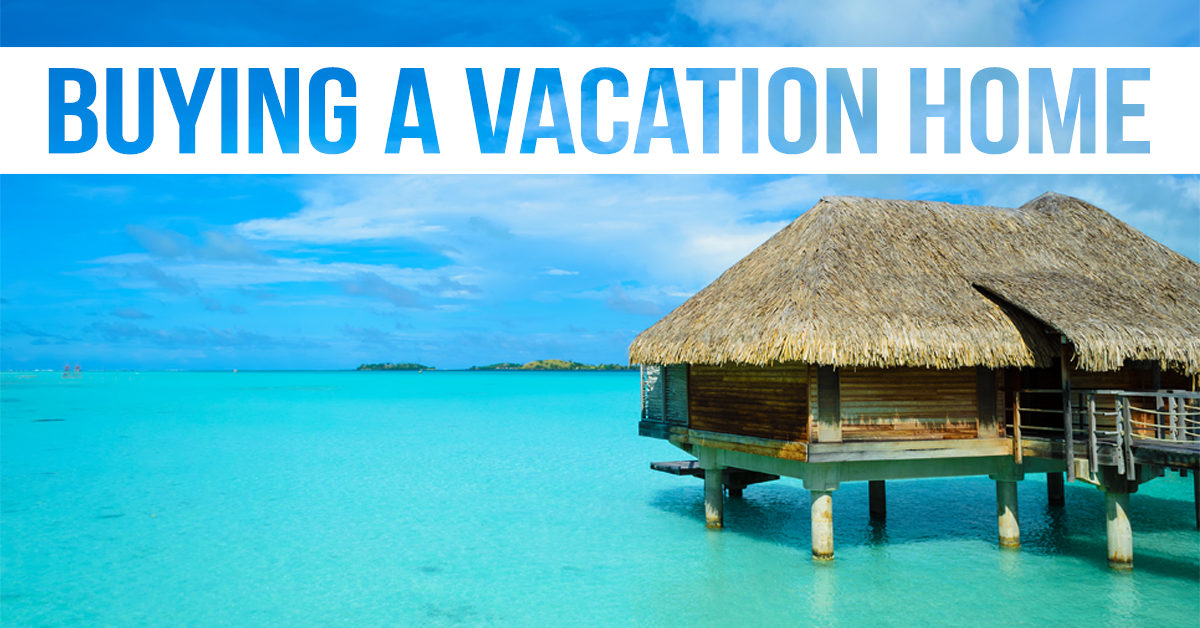Buying a Vacation Home: How to Find Your Comfort Zone
For a musician, there’s nothing better than playing “in the pocket.” That’s when the rhythm, the tone, the feel — everything is just right; you’re in the zone. You can also be “in the pocket” financially, with minimal debt, plenty of retirement savings and ample cash flow. If that’s the case, you might be considering a second home.
Owning a vacation home is definitely a sign of success. And the benefits can last a lifetime if you buy smart and stay in your comfort zone.

Second home sales are soaring
The market for second homes is on fire. Sales were up over 57% last year,according to the National Association of Realtors. And vacation home prices are falling. NAR reports that the median vacation home sold for $150,000 last year, down 11% from 2013.
Bargains can be found, too. Nearly half (45%) of second homes purchased were so-called distressed properties — either in foreclosure or a short sale.
Five questions to ask yourself
If you’re looking to spring for that cottage on the beach or the cabin in the mountains, try before you buy. Rent a nearby property and spend some time in the area. Ask yourself these questions, too:
- Who’s going to keep an eye on your place while you’re not there? If you don’t have friends, family or reliable neighbors nearby, consider hiring a property manager to take care of the house in your absence.
- Will you spend your valuable vacation time cleaning up and doing maintenance? A vacation owner on the Bogleheads forum says: “My wife and I purchased a vacation home about a 12-hour drive away on the sunny Florida beach. It was cool to say ‘I’m 26 and have a vacation home,’ but at the same time, the maintenance is a nightmare and finding any good help is tough in resort towns.” He adds: “My friend bought a lake house. He spends much more time mowing and paying bills then taking out his boat.”
- If you rent out the home, will it infringe on the time you get to spend there? You’ll likely want to spend time in your second home during the area’s peak season — and that can mean losing valuable bookings.
- How long will it take to make the escape? NAR says the typical buyer of a second home purchased a property that was a median distance of 200 miles from the primary home. However, the owner quoted above mentions a 12-hour drive to the beach. That’s quite a haul for a spur-of-the-moment weekend away.
- Will your interests change over time? Mountain biking or snowboarding may be a passion now, but a bad knee later can take you out of action. And that panoramic view might be wasted if you spend most of your time reading a book on the couch.
Pluses and minuses
All things being equal, the decision could wind up hinging more on financial considerations than fun. Second homes are a bit more difficult to buy than primary residences. Lenders will take a much closer look at applicants taking on additional debt.
Plus: Mortgage rates are often higher on second homes, and down payments bigger. While primary home loans can be obtained with as little as 3% down, expect to have to put at least 10% down on a vacation home. Insurance will likely be more expensive, as well, especially if you have to buy a rental dwelling policy.
Then there are the matters of property management and maintenance. Property management services can draw anywhere from 20-50% of rental income. A good rule of thumb for maintenance expenses is to set aside 1.5-2% of the home’s value each year for repairs.
From a tax perspective, you may still deduct mortgage interest — if the total of your combined home loans is less than $1.1 million. Of course, that requires expenses exceeding the standard deduction. If you rent the house out for more than 15 days per year, you’ll have to claim profits taxed as capital gains. There may also be property taxes and local lodging taxes to consider.
The bottom line
Having a convenient getaway certainly has its advantages. But there are financial and logistical matters to weigh. It’s smart not to rush into any purchase — and to be careful not to bust your budget. However, being “in the pocket” financially gives you a certain measure of flexibility.
Photo via iStock.
This article originally appeared on NerdWallet.


